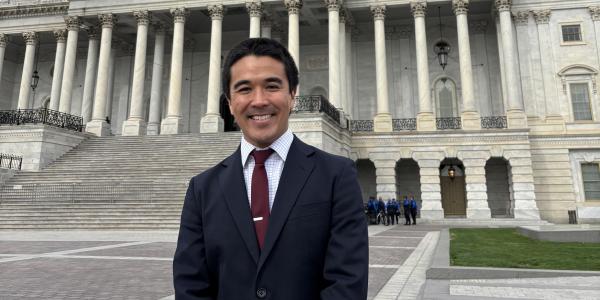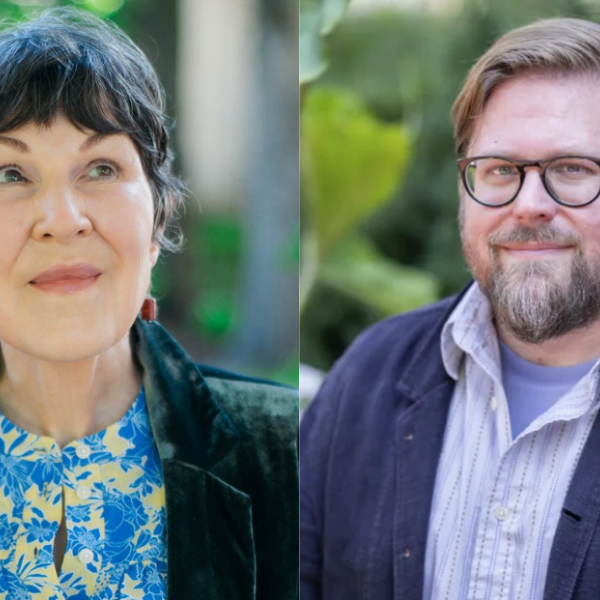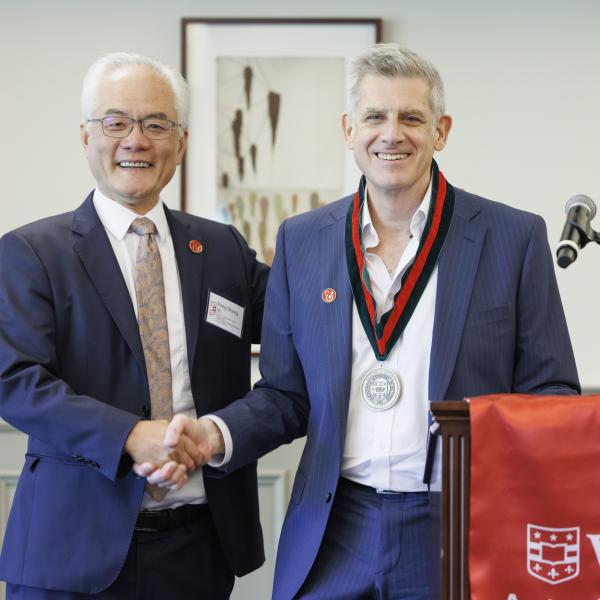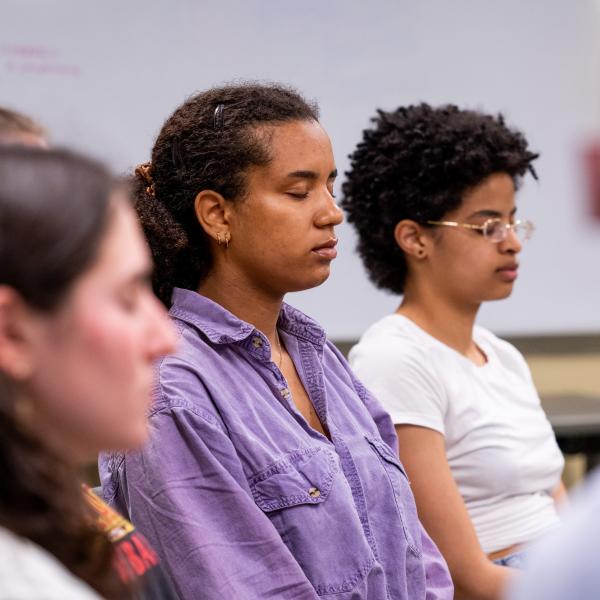A physics grad student took his concerns about the future of science to Washington, D.C.
As a graduate student in the Department of Physics, Bryce Wedig spends a lot of time thinking about dark matter and distant galaxies. But he’s also deeply tuned into more earthly matters, especially the decisions that shape the future of science.
Wedig is the co-president of ProSPER, a WashU graduate student group that promotes science policy and science communication. In April, he took his concerns from WashU to Washington, D.C., first as a participant in the American Astronomical Society’s Congressional Visit Days program and on a second trip with the American Association for the Advancement of Science’s Catalyzing Advocacy in Science and Engineering (CASE) Workshop.
He spoke with the Ampersand about his experiences in D.C., the importance of science advocacy, and the issues that matter most to young researchers.
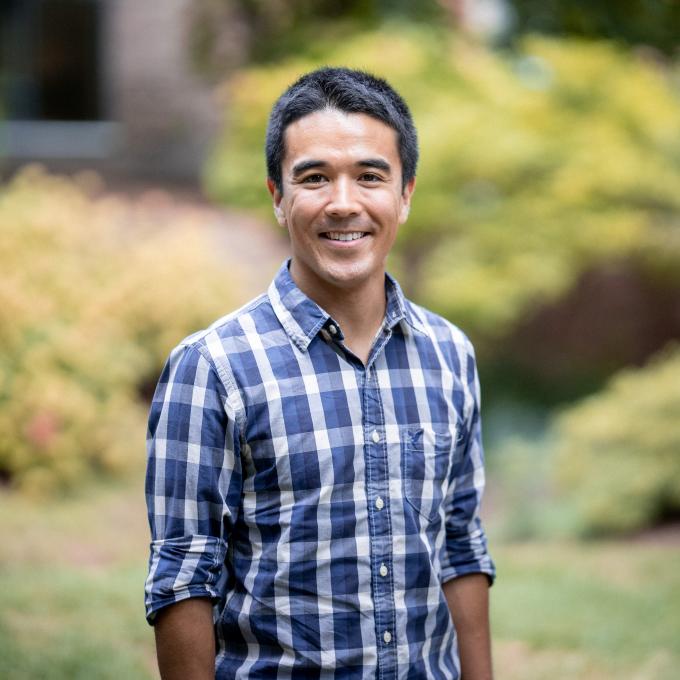
How would you describe your trips to Washington, D.C.?
They were interesting and eye-opening. At the AAS congressional visit, we spent the first two days learning how federal funding works and how members of Congress control the budget. On the third day, we met with staffers who could share our top concerns with members of Congress. I took the lead in meetings with the Missouri delegation, including staffers working for Senator Josh Hawley, Senator Eric Schmitt, and Representative Wesley Bell, whose district includes most of St. Louis.
At the CASE workshop, a group of WashU students from various disciplines — including anthropology, neuroscience, and public health sciences — met with staffers for Senator Hawley and Representatives Ann Wagner and Bob Onder, a WashU alum.
How did you explain the importance of science to the staffers?
At both of my D.C. visits, I made the point that basic science forms the foundation of the research and development that helps drive the American economy. A staffer asked me, “How does NASA help Missouri farmers?” I mentioned Landsat, a NASA program that helps monitor crop health and optimize water use. Landsat alone is estimated to have provided $25 billion in direct economic benefits in 2023.
My own research involves observing distant galaxies with space telescopes. Such work could help inspire new image processing algorithms with applications beyond astronomy. But for me, that’s not entirely the point. Understanding the universe is a fundamental human desire, and we shouldn’t stop advancing our knowledge.
What are the main concerns of young physicists and astronomers?
Like researchers in other fields, we want robust and sustained federal funding of science.
There are reasons to be concerned. The initial proposal for the 2026 federal budget would essentially cancel the Nancy Grace Roman Space Telescope, a cutting-edge instrument that would provide a field of view at least 100 times greater than Hubble Space Telescope. The telescope is almost finished, so canceling the project now would be a waste of money as well as a tremendous loss to science.
We also have specific concerns related to our fields. Researchers who are using ground-based telescopes are worried about the large number of Starlink satellites that can obstruct the view. Radio astronomers are concerned about the growing electromagnetic “noise” created by telecommunications companies. As someone who studies distant galaxies, I’m particularly committed to the eventual launch of the Nancy Grace Roman Telescope.
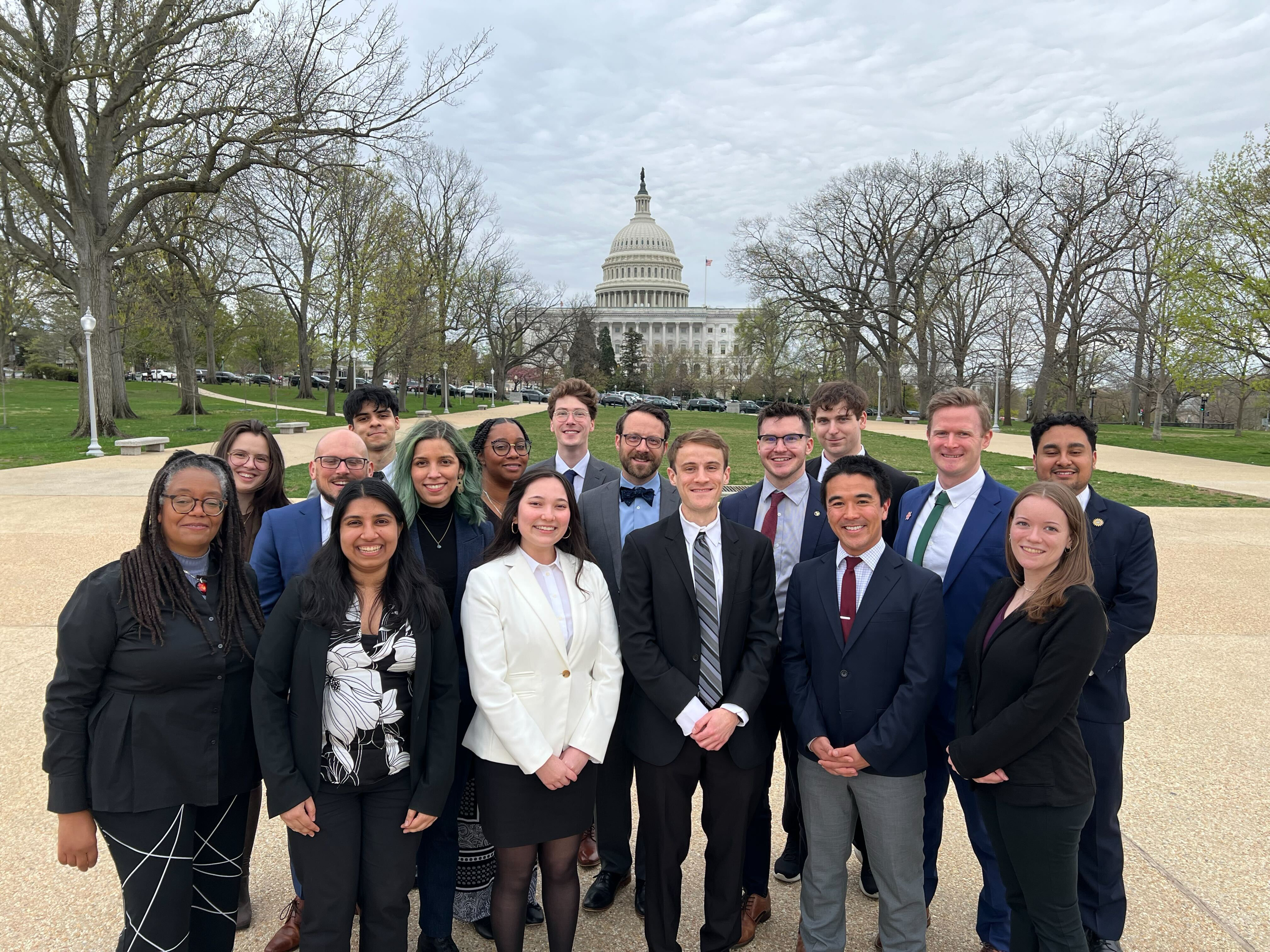
Were people in D.C. receptive to your message?
I think so. The interactions with the staffers went well. It’s their job to make you feel heard, but they did seem to understand the importance of investment in basic science research. I’m cautiously optimistic that the members of Congress will support us.
Why is it important for graduate students to advocate for science?
Graduate students can be very effective advocates. We’re often roughly the same age as congressional staffers, so we can relate to them. More importantly, we’re deeply invested in the future of science, and we know the issues and the stakes as well as anyone. We’re students, but we’re also taxpayers, voters, and constituents. We have a right to be heard.
If someone is interested in advocacy, how can they get started?
The AAS and AAAS have great sites that offer tips on science outreach, including advice on speaking with journalists, engaging with policymakers, and sharing science online. But you can check locally with groups like ProSPER. Becoming aware of the issues in your field is a good place to start.

